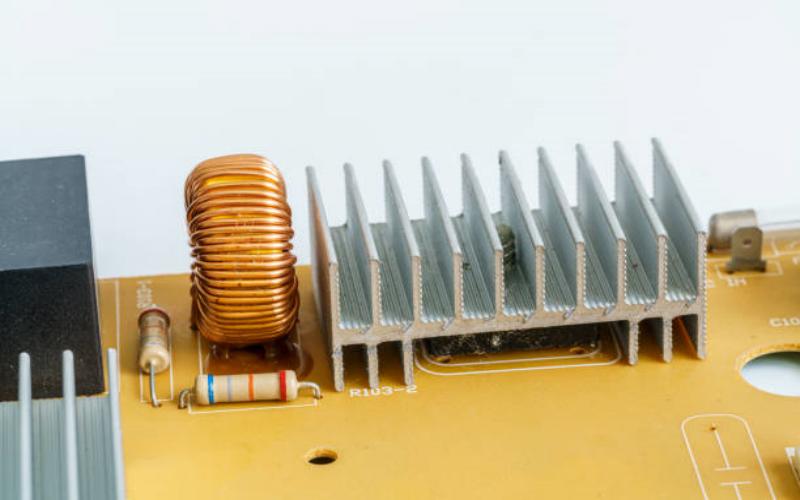Understanding the Importance of Aluminum Alloys in Extruded Heat Sinks
When it comes to heat management in electronic devices, extruded heat sinks play a crucial role. These heat sinks are designed to dissipate heat efficiently, preventing devices from overheating and maintaining optimal performance. One of the key factors that determine the effectiveness of an extruded heat sink is the choice of aluminum alloy. In this article, we will explore the best aluminum alloys for extruded heat sinks and their unique properties that make them ideal for this application.
1. 6061 Aluminum Alloy
The 6061 aluminum alloy is one of the most commonly used alloys for extruded heat sinks. It offers a good balance of strength, heat dissipation, and cost-effectiveness. With a thermal conductivity of 167 W/mK, it efficiently transfers heat away from the source. Additionally, 6061 has excellent corrosion resistance, making it ideal for applications in harsh environments.
2. 6063 Aluminum Alloy
Another popular choice for extruded heat sinks is the 6063 aluminum alloy. It has similar thermal conductivity to 6061 (166 W/mK) and offers good machinability. 6063 also has a higher elongation, making it easier to form complex shapes during the extrusion process. This alloy is often preferred for heat sinks with intricate designs or those requiring tight tolerances.
3. 5083 Aluminum Alloy
If you are looking for an aluminum alloy with exceptional corrosion resistance, 5083 is a great option. This alloy contains magnesium and has excellent resistance to saltwater and marine environments. While its thermal conductivity (121 W/mK) is lower than 6061 and 6063, 5083 is still a viable choice for heat sinks that may be exposed to corrosive elements.
4. 6060 Aluminum Alloy
When it comes to extruded heat sinks for architectural applications or decorative purposes, the 6060 aluminum alloy is often the top choice. It offers good corrosion resistance, moderate strength, and can be easily anodized or powder-coated for a desired finish. With a thermal conductivity of 166 W/mK, 6060 is suitable for heat sinks where aesthetics are as important as functionality.
5. 6082 Aluminum Alloy
For heat sinks that require high strength and durability, the 6082 aluminum alloy is a reliable option. It has a thermal conductivity of 160 W/mK and offers excellent mechanical properties. 6082 is commonly used in applications where the heat sink may be subjected to heavy loads or vibrations, such as automotive or aerospace industries.
6. 1050 Aluminum Alloy
Although not as commonly used as the previous alloys, the 1050 aluminum alloy has its place in certain heat sink applications. With a thermal conductivity of 229 W/mK, it is one of the most efficient heat conductors among aluminum alloys. However, its low strength limits its use to heat sinks that don't require high mechanical stability.
7. 1100 Aluminum Alloy
Similar to 1050, the 1100 aluminum alloy is primarily chosen for its high thermal conductivity (229 W/mK). It is often used in heat sinks for low-temperature applications or in cases where cost is a significant factor. However, due to its low strength, 1100 is not suitable for heat sinks exposed to heavy loads or high temperatures.
8. 3003 Aluminum Alloy
The 3003 aluminum alloy is a versatile option for extruded heat sinks. It offers good thermal conductivity (167 W/mK) and is easy to form and weld. This alloy is often chosen for heat sinks in consumer electronics, where its combination of strength, cost-effectiveness, and ease of manufacturing make it an attractive choice.
9. 2011 Aluminum Alloy
If you require a heat sink with good machinability, the 2011 aluminum alloy is worth considering. Its thermal conductivity (150 W/mK) is slightly lower than other alloys mentioned, but its excellent machinability allows for intricate designs and precise manufacturing. 2011 is commonly used in heat sinks for LED lighting and automotive applications.
10. Choosing the Right Aluminum Alloy for Your Heat Sink
When selecting an aluminum alloy for your extruded heat sink, it is important to consider the specific requirements of your application. Factors such as thermal conductivity, corrosion resistance, strength, and cost should all be taken into account. By understanding the unique properties of different aluminum alloys, you can make an informed decision and ensure optimal heat management for your electronic devices.

